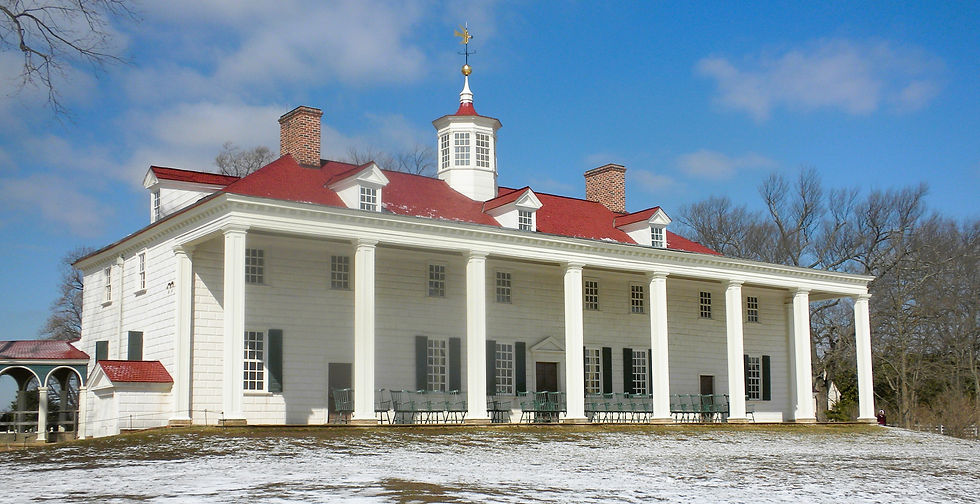Gratitude Friday 01 07 22 – Leadership in the Winters of Our History
- Bill Stauffer

- Jan 7, 2022
- 4 min read

“The recent Instance of uncomplaining patience during the scarcity of provisions in Camp is a fresh proof that they possess in an eminent degree the spirit of soldiers and the magnanimity of patriots” – George Washington Commander and Chief of the Continental Army at Valley Forge, Winter 1778
At the end of week one, 2022, our world seems in profound disarray, frayed and fraught with division. While some among us are experiencing serious health and economic challenges, others are losing their minds and their composure because they cannot buy their preferred cheese or meet some other desire. We have faced way more challenging winters as a nation with dignity and grace, a fact we would do well to remember. We forget how to get through challenging times in part because we forget the value of practical matters, positive spirit, and good leadership.
We learn a thin veneer of our own history, often heavily seasoned with our own perspectives, biases, and the knowledge of how any particular chapter ends. Part of our thin veneer about the revolutionary war is that we imagine the colonies united behind the war and focusing their collective resources on supporting it, but there was a lot of bickering and delay. Many in our new nation were still loyal to the crown, and most of our citizens were called fence sitters for a reason. Far from that sanitized version of history in which we rose up against tyranny in a united fashion, we were divided and unsure of our future. Had it not been for good leadership and a bit of luck, the history books would read differently.
244 years ago, in Valley Forge PA about 50 miles from where I am writing this post, grim events were unfolding in early 1778. The Continental Army was wintering at Valley Forge. Our fledging assembly of volunteers and conscripts, who had taken up arms against the King were freezing and starving to death. In command was General George Washington, who refused compensation for leading our armies. He only asked for compensation for his expenses, deferred until the successful conclusion of the war, which was far from certain in that winter. Doubts existed at times of his leadership as a General, even within himself, yet he bet on his own success while remaining humble, signs of good leadership.
Earlier, in the fall of 1777, Washington moved to defend Philadelphia, our capitol at the time, from the stronger British forces, resulting in a series of defeats in Brandywine, Paoli, and Germantown Pennsylvania. It was a strategic error that could have ended the war in the favor of the British. Philadelphia fell and Washington decided to overwinter at Valley Forge. It was close enough to Philadelphia to keep his army of 12,000 in the war and it had fresh water and firewood.
It was an infamously grim winter. Disease and lack of supplies were taking a toll on the fledgling army. They lacked good shelter, adequate food, shoes, and winter clothing. As noted in the historical record, the lack of clothing alone, including shoes, socks, and coats left as many as 3,000 of Washington's troops unfit for service, with starving, wearied soldiers leaving bloodied footprints in the snow and ice. 2,000 soldiers died that winter from disease, the cold and lack of food. Our Continental Congress largely failed at finding ways to pay for it all in those early years of the conflict. General Washington resorted to sending out men to forage the local countryside to feed his army. Practical matters like training, hygiene, order, and logistics were the foe that winter for our first army.
Washington saw a person well suited to address these needs. He created the position of Inspector General and quickly appointed Baron Friedrich von Steuben to it shortly after his arrival to Valley Forge. Von Steuben worked with the soldiers, who had seen combat, but lacked training to pose an effective threat to the British. He established basic sanitation standards and started to record information on supplies and the status of the army, none of which until that time had not been done. Washington saw the worth of the man, created, and put him in a position that quite likely influenced the outcome of the war.
So why is this all something to be grateful for? Because we can be inspired and educated by our own history. We can take stock of our good fortune and value leadership that solves problems and brings us together is vital in times of chaos. Logistics are boring, but critical. Having purpose so we don’t get mired down in our own stuff matters. Things like hygiene and procedure must be paid attention to for us to prevail against many of the challenges we face now, too.
As now, our forming nation was divided and dysfunctional. Our ragtag Army got through that winter of 1777-78, in part because of good leadership. Hope, purpose, and connection are vital to healing what ails us, we need to support leaders who tap these cords. Washington was by no means a perfect man and would fail the purity tests of our day, although this is true of most of us over the course of human history. Grateful for leaders everywhere who are working to get their people through rough times. Grateful for those leaders who can see the potential in people and support their development in ways that benefit us all.
What were you grateful for today?




Comments